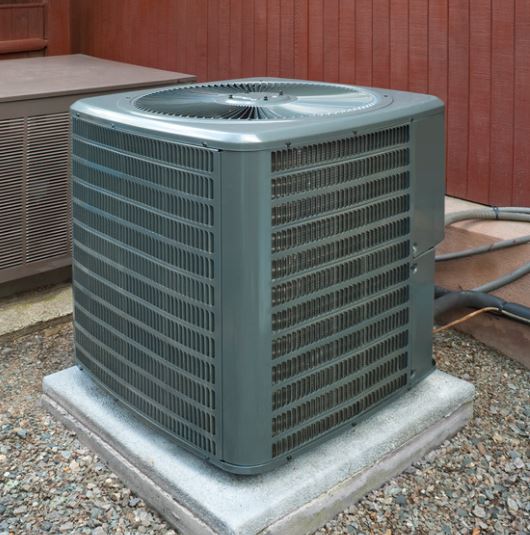
Heat pumps frequently come up in conversations with buyers and sellers. To be totally honest, it has been a bit of mystery to me as well. I had a buyer who recently called service for their heat pump on a newly purchased house because there was fear it wasn’t operating correctly as water appeared coming out of the unit in the winter. I met the service guy for my client and was able to understand the system better myself. What I didn’t understand was the relationship between the forced air gas furnace and the heat pump. In the end, my clients heat pump was working as it was suppose to. This explains more on how these work.
A heat pump is a type of HVAC (heating, ventilation, and air conditioning) system that uses electricity to transfer heat from one location to another. In the winter, a heat pump extracts heat from the outside air or ground and transfers it into the home to provide warmth. In the summer, the process is reversed, and the heat pump removes heat from the inside of the home and transfers it outside to provide cooling.
During the winter, a heat pump works by absorbing heat from the outside air or ground through the use of a refrigerant. The refrigerant is then compressed, which increases its temperature. The hot refrigerant is then passed through a heat exchanger, where it transfers its heat to the air or water that is distributed throughout the home to provide warmth.
In the summer, the heat pump works in the reverse process. It absorbs the heat inside the house and releases it outside through the evaporator coil. The heat is then absorbed by the refrigerant and is released outside through the condenser coil. This process cools the inside of the home.
It’s important to note that heat pumps are more efficient in mild climates, as they may struggle to extract enough heat from the outside air when temperatures fall below freezing. In extremely cold climates, an auxiliary heating source, such as electric resistance heating, may be needed to supplement the heat pump during extremely cold weather.
Heat pumps are considered more efficient than traditional forced air furnaces for several reasons. First, heat pumps do not generate heat, they transfer heat. This means they do not consume fuel to create heat, which results in lower operating costs. Second, heat pumps can be used for both heating and cooling, whereas traditional forced air furnaces can only be used for heating. This eliminates the need for separate heating and cooling systems, which can also save on costs. Third, heat pumps are able to extract heat from the air or ground even when outside temperatures are relatively low, making them more efficient in mild climates. Finally, heat pumps have a higher coefficient of performance (COP) compared to traditional forced air furnaces, which means they can produce more heat per unit of energy consumed. Overall, heat pumps are a more energy-efficient and cost-effective solution for heating and cooling compared to traditional forced air furnaces.